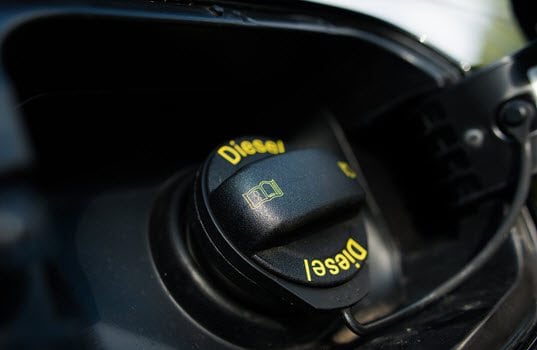Editor: Unfortunately, the recent Volkswagen scandal has additionally done some damage to diesel’s reputation in the United Sates.
Integer Research, an independent research organization analyzing the global emissions control market, takes a look at what measures are being taken to lessen diesel’s harmful effects – can diesel’s damaged European reputation be repaired?
Recent news coverage in France, UK, Germany and other parts of Europe regarding harmful emissions levels has resulted in diesel fuel receiving a very public shaming. Headlines across newspapers and websites have been quick to emphasize the negative impact diesel engine emissions have on our environment and health. Particular attention has focused on passenger cars and SUVs, segments where diesel accounts for more than half of all vehicle sales in many countries in Europe. However, this must also be balanced with an awareness of how the automotive industry has been working with governments and international bodies to achieve significant progress through global legislation and new emissions reduction technologies. All of which is helping diesel clean up its act.
The London Assembly, (the principal local government body for London, UK) among other European authorities has been at the spearhead of coverage against the use of diesel; recently releasing a policy document entitled ‘Driving Away From Diesel.’ The document recommends the evaluation of the timeline for the compliance with air pollution limits, reviews of the current plans for Ultra Low Emissions Zones (ULEZ), and the review of the Vehicle Excise Duty to reflect pollutants such as nitrogen oxides (NOx) particulate matter (PM) and carbon dioxide (CO2) among other recommendations. While many of the views are solid, there are developments within diesel vehicle technology and modern environmental legislation that are making progress in these areas.
Cleaner Emissions
Contemporary diesel vehicles have massively reduced NOx and PM emissions compared to their predecessors. European diesel emissions legislation has significantly reduced both PM and NOx from diesel vehicles over the course of several iterations of the standards. The recently implemented Euro VI legislation has prompted the most significant and important strides to date. For instance, legislation for medium and heavy-duty vehicles has driven to a drop of 50% of PM, and 80% of NOx when compared to the previous Euro V legislation, and a fall of over 97% and 95% respectively since emissions legislation was first introduced in 1988.
Better Testing
The London Assembly criticized a well-known weakness of traditional regulations, the gap between performance during the test procedures (certification) and actual emissions when vehicles are driven by customers. Improvements in vehicle emissions testing procedures and standards are underway and evolving. The European Commission has responded to the need for more stringent ‘real-world’ driving tests. Portable Emissions Measuring Systems (PEMS) have also been included in new testing, using a variety of driving conditions, speeds and engine loads. Further tests are expected to develop, and the commission has made it a priority to ensure these tests are as strong and rigorous as they can be when they are introduced for cars in 2017. PEMS testing is already in place in Europe for medium and heavy-duty trucks.
Greenhouse Gas Targets
Finally, diesel makes up a vital component of the fuel mix to meet impending greenhouse gas (GHG) limits and fuel economy requirements. Diesel engines produce considerably less CO2 than gasoline per mile, and are far more fuel efficient. European car manufacturers need the efficiency benefits of diesel to meet the 2021 requirement of 95 grams of CO2 per kilometer and are therefore committed to addressing the concerns about real world driving emissions.
It is clear that emissions from diesel vehicles present problems, and that these need to be rigorously challenged. But it is important to acknowledge that significant efforts across the industry continue to be made to address these issues and further progress in global legislation and emissions reduction technology is underway.
Integer Research is an independent provider of specialist market research and analysis, conferences and events and tailored consultancy services across three core industries: Environment & Emissions; Fertilizers & Chemicals and Wire & Cable. Headquartered in London, UK, and with offices around the world, Integer offers a variety of information services to meet any client need. From bespoke research projects to in-depth publications and subscription services or attendance at one of our leading industry events, Integer Research is the ideal partner for any company looking to better understand the latest market developments, the major players and future industry challenges and opportunities. www.integer-research.com









